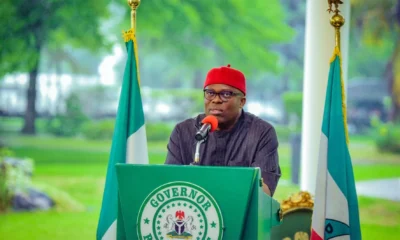Relationship
Why Most Relationships Are Failing in the Talking Stage
We fall in love with potential faster than people. The “talking stage” — that fragile bridge between strangers and lovers — should build connection.
We fall in love with potential faster than people. The “talking stage” — that fragile bridge between strangers and lovers — should build connection. But for many, it’s where everything falls apart. Why are so many modern relationships ending before they even begin?
The illusion of connection
In the age of instant replies and endless scrolling, we talk more than ever — yet connect less than ever. The “talking stage” has become a digital maze where we confuse constant communication for emotional depth.
According to PsychCentral, people often overestimate how well they know someone online. We share playlists, memes, and daily updates — but not our fears, triggers, or real intentions.
1. Everyone wants chemistry, not connection
We chase butterflies instead of consistency. The moment the spark fades, we assume it’s not meant to be. But love isn’t fireworks — it’s slow-building warmth.
The truth? Chemistry may start a conversation, but communication keeps it alive. If every chat is about “vibes” and not values, the foundation will crumble as soon as things get real.
2. Emotional unavailability is the new normal
People crave attention but fear vulnerability. We open up just enough to seem deep, then retreat when things get too close.

The Gottman Institute explains that emotional safety — the ability to share honestly without fear — is the core of lasting connection. Without it, the talking stage becomes a game of who cares less.
3. Mixed signals and modern distractions
We live in a world of options — and that’s the problem. While you’re trying to connect with one person, they might be texting three others “good morning.” Dating apps, DMs, and situationships create emotional noise.
It’s not always cheating — it’s confusion. People are unsure of what they want, but they still want attention. That uncertainty poisons the talking stage before commitment even begins.
4. The fear of being the one who cares more
In the talking stage, vulnerability feels like weakness. So we guard our feelings behind sarcasm, memes, and nonchalance. But love can’t grow in guarded hearts.
DON’T MISS: How to Stop Loving Someone Who Isn’t Good for You
As MindBodyGreen puts it, healthy connection requires reciprocity — equal effort, not emotional games. When only one person drives the conversation, it stops being a connection and becomes a chase.
5. Unrealistic expectations from social media
We’ve been fed highlight reels of “perfect couples” online — so we expect instant perfection in real life. One small flaw, one awkward silence, and we assume “it’s not giving.” But real connection is awkward, raw, and unfiltered.

The talking stage fails because we expect fireworks instead of foundation.
How to make the talking stage actually work
- Be intentional. Know what you want before you start.
- Communicate clearly. Say what you mean — and mean it.
- Listen actively. Connection isn’t built through replies; it’s built through understanding.
- Stop performing. You don’t have to impress; just be real.
- Set boundaries early. Clarity kills confusion.
Final thought
The talking stage isn’t failing — we are.
We’re trying to build connection on half-interest and half-truths. Love doesn’t grow in uncertainty; it grows in effort, honesty, and emotional courage.
If you’re tired of short stories, start writing a real one — not through words, but through consistency. The talking stage isn’t where love ends; it’s where it learns whether you’re ready.






















